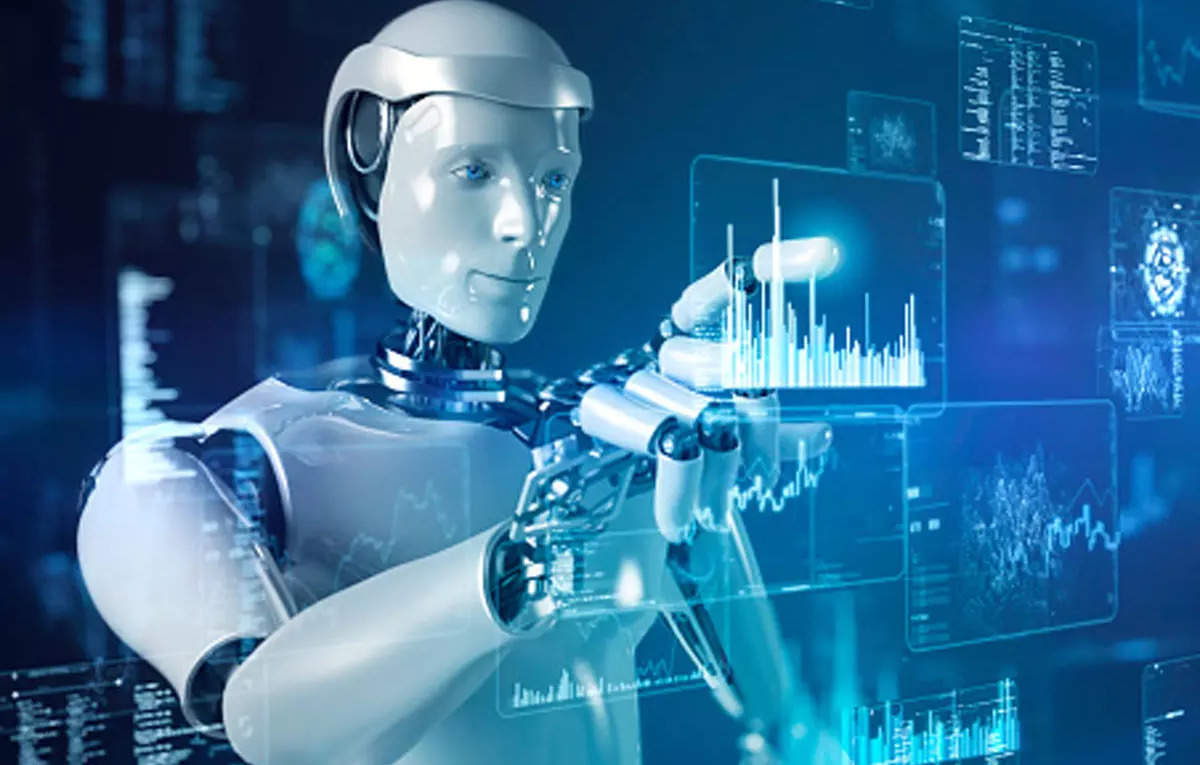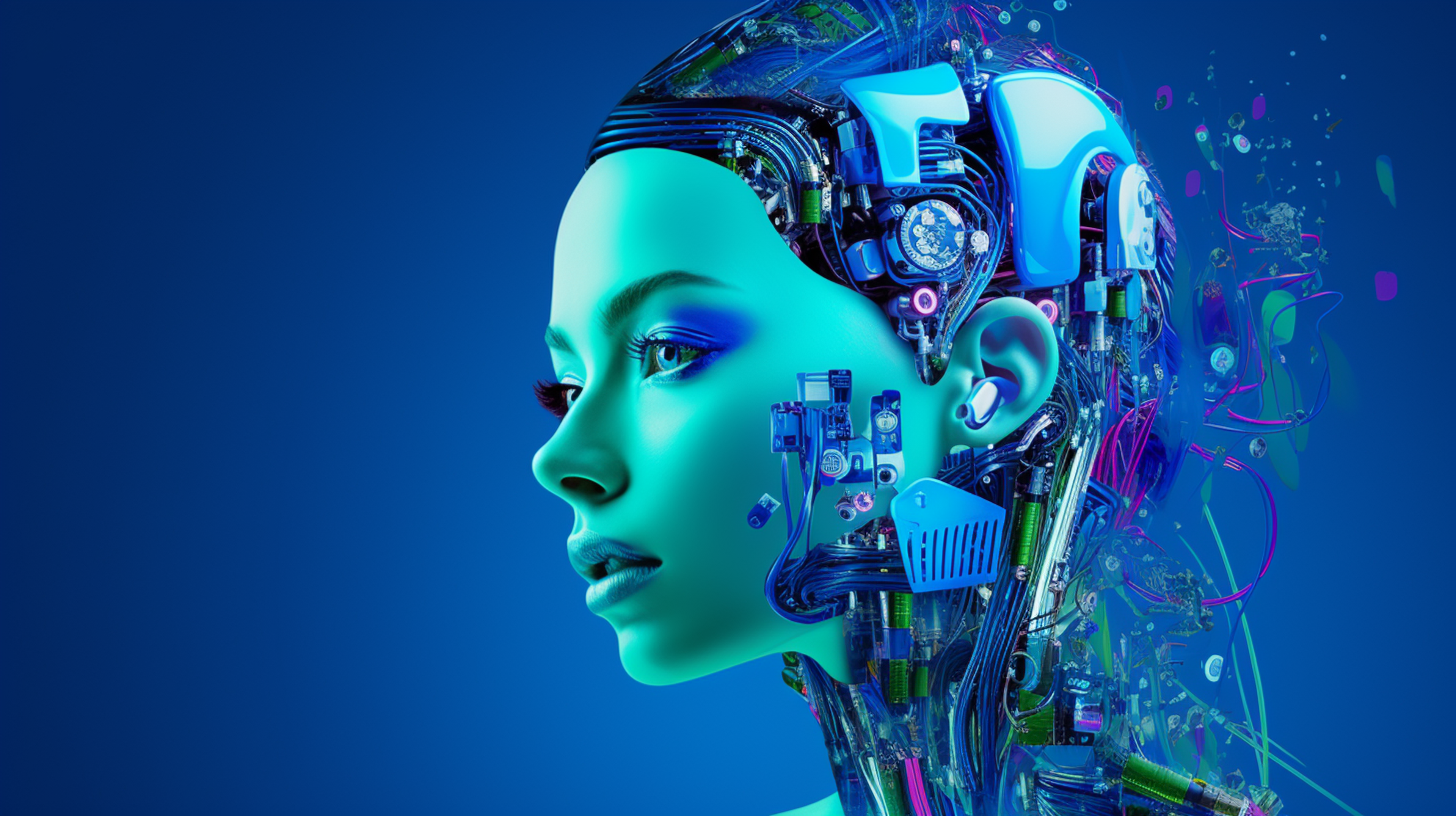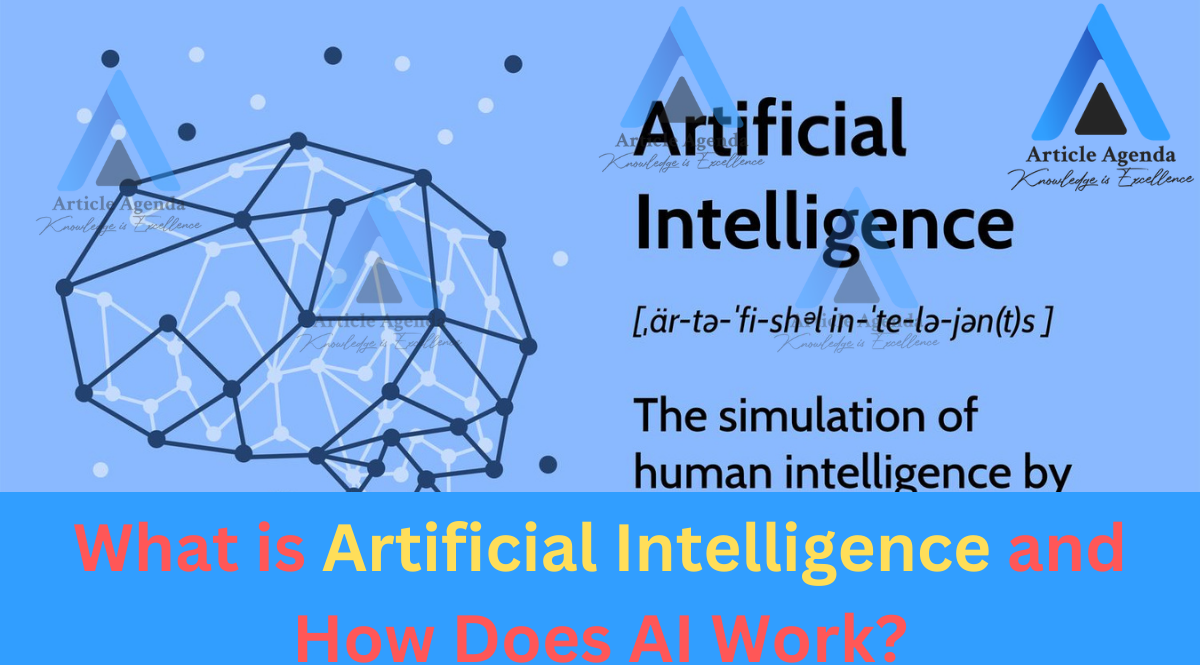Introduction to Artificial Intelligence
Artificial intelligence (AI) has recently become a buzzword, but what exactly is it? In simple terms, AI is the simulation of human intelligence in machines programmed to think and learn like humans. It encompasses various technologies and methodologies that allow computers to mimic cognitive functions such as problem-solving, speech recognition, decision-making, and more.

Table of Contents
- Introduction to Artificial Intelligence
- History and Evolution of Artificial-Intelligence
- Types of Artificial Intelligence
- How does Artificial-Intelligence work?
- Applications of Artificial Intelligence
- Benefits and Challenges of Artificial-Intelligence
- Ethical Considerations in Artificial-Intelligence
- The Future of Artificial-Intelligence
- Conclusion
- Latest Post:
History and Evolution of Artificial-Intelligence
The concept of AI dates back to ancient times, but it was in the mid-20th century that significant advancements were made. The term “Artificial Intelligence” was coined by John McCarthy in 1956, who organized the Dartmouth Conference that marked the birth of AI as a field of study. Early AI systems relied on rule-based programming, where explicit instructions were given to computers to perform specific tasks.
However, AI faced challenges in the following decades due to limitations in computing power and the complexity of human cognition. It was in the 1990s that AI witnessed a resurgence with the emergence of machine learning algorithms and the availability of vast amounts of data. This led to the development of more sophisticated AI systems capable of learning from data and improving performance over time.

Types of Artificial Intelligence
There are various types of AI, each serving different purposes and exhibiting different levels of autonomy. The three main types of AI are:
Narrow or Weak AI:
Narrow AI refers to systems designed for a specific task or domain. These AI systems excel in performing a single charge, such as facial recognition or natural language processing. They are highly specialized and cannot generalize their knowledge to other domains.
General AI:
General AI, or Strong AI, refers to systems that can understand, learn, and apply knowledge across multiple domains. Unlike narrow AI, general AI can perform any intellectual task that a human being can do. However, the development of true general AI remains a challenge and is yet to be achieved.
Superintelligent AI:
Superintelligent AI surpasses human intelligence and can outperform humans in virtually every cognitive task. This level of AI, often depicted in science fiction, is purely hypothetical and raises ethical concerns regarding its impact on society.
How does Artificial-Intelligence work?
AI’s core lies in processing and analyzing data to make informed decisions or predictions. AI systems employ various techniques, with machine learning and deep learning being the most prominent.
Read More : From Necessity to Empowerment: Understanding the Importance of Technology in our Modern World
Machine Learning and Artificial-Intelligence:
Machine learning is a subset of AI that focuses on building algorithms that enable computers to learn from data without being explicitly programmed. Machine learning algorithms learn patterns and relationships within the data to make accurate predictions or decisions. These algorithms can be categorized into three types: supervised learning, unsupervised learning, and reinforcement learning.
Supervised learning involves training the algorithm on labeled data, where it learns to map input data to the correct output. On the other hand, unsupervised learning deals with unlabeled data and aims to discover hidden patterns or structures within the data. Reinforcement learning involves training an algorithm through a trial-and-error process, where it learns by receiving feedback based on its actions.
Deep Learning and Artificial Intelligence:
Deep learning is a subset of machine learning that focuses on building artificial neural networks inspired by the structure and function of the human brain. These neural networks consist of interconnected layers of artificial neurons that hierarchically process information. Deep learning algorithms can automatically learn hierarchical representations of data, enabling them to extract complex features and make high-level predictions.
Deep learning has revolutionized AI by achieving remarkable performance in tasks such as image and speech recognition, natural language processing, and more. Its success can be attributed to the availability of vast amounts of labeled data and advancements in computing power, which allow for the training of large-scale neural networks.
Applications of Artificial Intelligence
Artificial Intelligence has found applications in various industries, significantly impacting our lives and work. Some prominent applications of AI include:
Healthcare:
AI is used in healthcare to improve diagnosis, treatment, and drug discovery. AI systems can analyze medical images, detect anomalies, and diagnose diseases. They can also identify patterns in patient data to predict disease progression and recommend personalized treatment plans.
Finance:
AI is transforming the finance industry by automating fraud detection, risk assessment, and algorithmic trading tasks. AI-powered chatbots are also used to provide personalized customer support and financial advice.
Transportation:
AI is utilized in the transportation sector to optimize traffic flow, enhance navigation systems, and develop autonomous vehicles. AI algorithms can analyze real-time traffic data to suggest the most efficient routes and reduce congestion.
Manufacturing:
AI is revolutionizing the manufacturing industry by enabling predictive maintenance, quality control, and process optimization. AI systems can analyze machine sensor data to identify potential failures and schedule maintenance before breakdowns occur. They can also analyze production data to identify patterns that indicate quality issues and improve efficiency.
Education:
AI has the potential to transform education by personalizing the learning experience and providing intelligent tutoring. AI-powered virtual assistants can assist students in their studies, answer questions, and provide feedback. Additionally, AI can analyze student performance data to identify areas for improvement and customize learning materials accordingly.

Benefits and Challenges of Artificial-Intelligence
Artificial-Intelligence offers numerous benefits but also challenges that must be addressed. Some of the key benefits and challenges of AI are:
Benefits of Artificial-Intelligence:
· Increased efficiency and productivity in various industries
· Improved accuracy and precision in decision-making
· Automation of repetitive and mundane tasks
· Enhanced customer experience through personalized interactions
· Accelerated scientific discoveries and advancements
Challenges of Artificial-Intelligence:
· Ethical considerations regarding privacy, security, and bias
· Potential job displacement due to automation
· Lack of transparency and interpretability in AI systems
· Adversarial attacks, where AI systems can be manipulated to make incorrect decisions
· Potential misuse of AI for malicious purposes
Ethical Considerations in Artificial-Intelligence
As AI continues to advance, ethical considerations become increasingly important. Ensuring that AI systems are developed and used responsibly is crucial to prevent potential harm and address concerns such as bias, privacy, and accountability.
Bias in AI:
AI systems learn from data, and if the data used for training contains biases, the resulting AI system may also exhibit those biases. This can lead to discriminatory hiring, lending, and criminal justice outcomes. Efforts should be made to identify and mitigate biases in AI systems to ensure fairness and equal treatment.
Privacy and Security:
AI systems often require access to large amounts of personal data to perform their tasks. Protecting the privacy and security of this data is essential to prevent unauthorized access or misuse. Stricter regulations and privacy frameworks should be implemented to safeguard sensitive information.
Accountability and Transparency:
AI systems should be designed in a way that enables traceability and accountability. Users should have visibility into how AI systems make decisions and be able to understand the underlying logic. This promotes trust and helps in identifying and rectifying potential errors or biases.
The Future of Artificial-Intelligence
The future of Artificial-Intelligence holds immense potential and possibilities. As technology evolves, AI is expected to play a significant role in various aspects of our lives. Some key trends and developments in AI include:
Continued Advancements in Deep Learning:
Deep learning is expected to advance, enabling AI systems to achieve even higher performance levels in complex tasks. This will lead to natural language understanding, computer vision, and robotics breakthroughs.
Integration of AI with the Internet of Things (IoT):
Integrating AI with IoT devices will create a network of smart devices that can learn and adapt to user preferences. This will enable seamless automation and personalized experiences in smart homes, healthcare, and transportation.
Ethical AI and Responsible Development:
The focus on ethical considerations and responsible development will increase as AI becomes more pervasive. Organizations and governments must establish regulations and guidelines to ensure the responsible use of AI and address potential risks.
Collaboration between Humans and AI:
AI is not meant to replace humans but to augment their capabilities. The future will see increased collaboration between humans and AI systems, where humans provide the creativity, empathy, and critical thinking required for complex problem-solving. At the same time, AI assists with data analysis and decision-making.
Conclusion
Artificial-Intelligence has come a long way since its inception and continues to reshape our world. From its humble beginnings to the current state of advanced machine learning and deep learning algorithms, AI has found applications in various industries, revolutionizing healthcare, finance, transportation, manufacturing, and education, among others. While AI offers numerous benefits, it also presents challenges that must be addressed, including ethical considerations and potential biases. As we move into the future, AI is expected to play an increasingly significant role in shaping the way we live and work. AI must be developed and used responsibly to ensure its positive impact on society.
Latest Post:
-
Smart Home Appliances in the UAE: Revolutionizing Modern Living
The UAE has long been recognized as a hub for innovation and technological advancement, and the adoption of smart home appliances is no exception. As the nation embraces the concept of smart homes, residents are experiencing a transformation in their daily lives, characterized by increased convenience, efficiency, and sustainability. This article explores how smart home…
-
(Artificial Intelligence) AI and ML (Machine Learning) : Transforming the Future
Artificial Intelligence (AI) and Machine Learning (ML) are two of the most transformative technologies of our time. They are reshaping industries, driving innovation, and opening up new possibilities in ways previously unimaginable. This article explores the fundamentals of AI and ML, their applications, and their profound impact on various sectors. Understanding Artificial Intelligence (AI) What…
-
Digital Marketing Services: Transforming Your Business in the Digital Age
In today’s digital-first world, businesses must leverage digital marketing services to remain competitive, attract customers, and drive growth. Digital marketing encompasses a broad range of tactics and strategies aimed at promoting products or services through digital channels. This article delves into the various types of digital marketing services available, their benefits, and how businesses can…





I like this website it’s a master piece! Glad I observed this ohttps://69v.topn google.Blog monry